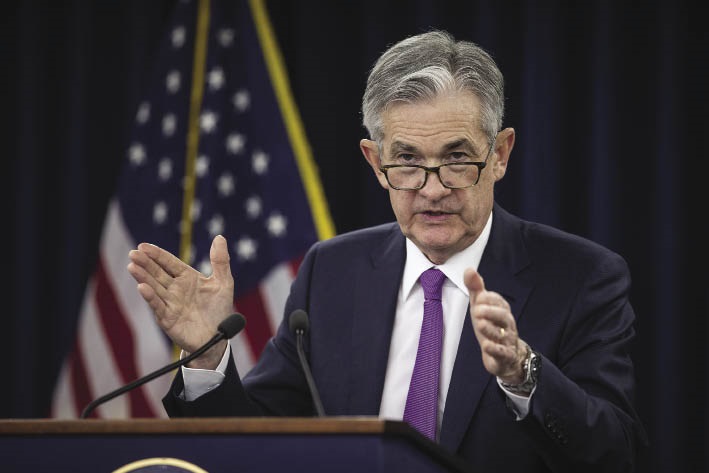
- For more financial news, go to the News24 Business front page.
Central banks for the world's biggest economies have served notice that they will keep interest rates as high as needed to tame inflation, even as two years of unprecedented global policy tightening reaches a peak.
The so-called "higher for longer" mantra is now the official stance of the U.S. Federal Reserve, European Central Bank and the Bank of England, as well as being echoed by monetary policy-makers from Oslo to Tapei.
For central bankers first chastised for being late to spot the post-pandemic surge in inflation and then cautioned for overdoing their response, the prize of returning the global economy to stable prices without recession is now within sight.
Their task is to convince financial markets not to undo their work with bets on early rate cuts, and to watch for new risks such as rising oil prices - while hoping governments help with budgets that do not further fuel inflation.
"We will need to keep interest rates high enough for long enough to ensure that we get the job done," Bank of England Governor Andrew Bailey said on Thursday after policymakers narrowly decided to hold its main interest rate at 5.25%.
US Federal Reserve policymakers had a similar message on Wednesday. They held the Fed's benchmark rate at 5.25%-5.50% but stressed they would remain tough in an inflation fight they now see lasting into 2026.
In Europe, ECB President Christine Lagarde was adamant last week that further hikes for the 20-country euro zone could not be ruled out. The central banks of Norway and Sweden both signalled on Thursday they could hike again, with even the Swiss National Bank holding out the prospect of further interest rate hikes despite inflation at a comfortable 1.6%.
Turkey's central bank confirmed its hawkish turn while in Asia, Taiwan's central bank flagged continued tight policy. The South African Reserve Bank held its key rate steady, but policymakers cited continued risks to the inflation outlook.
Significant outliers include the Bank of Japan, widely expected to stick to negative rates at a meeting ending Friday, and the People's Bank of China, where recent better economic prospects allowed it to keep rates on hold on Thursday.
'Tipping point'
Despite gradually cooling, inflation in most large economies remains well above the target 2% level which central bankers deem healthy. In August it stood at 3.7% in the United States and 5.2% in the euro zone.
Yet for all the tough rhetoric, investors remain sceptical that central banks will stay the course given doubts over the strength of the Chinese economy and geopolitical worries, from the Ukraine war to US-Chinese rivalry.
"By this time next year, we anticipate that 21 out of the world's 30 major central banks will be cutting interest rates," Capital Economics wrote in a commentary entitled "A tipping point for global monetary policy".
Either way, the prospect that global interest rates are pretty close to peak will be of huge relief to emerging economies suffering from heavy debt servicing loads.
With the United States and Europe both seen avoiding the outright recession once predicted, the enticing view of a "soft landing" for the global economy is coming back into sight, largely thanks to unusually buoyant labour markets.
Policymakers admit they have yet to agree on an explanation for this. Some suggest firms are anxious to avoid a repeat of the skills shortages they suffered when the global economy took off in 2021 after COVID lockdowns and so are "labour hoarding".
That unsolved puzzle means opinions are divided as to what the real underlying strength of the global economy is, and whether it can take a sustained period of high interest rates without overall demand being badly damaged.
Some argue that this was why they detected, through all the tough talk, a non-committal tone to the Federal Reserve's language on the likelihood of a further rate hike this year.
"(US Fed chairman Jerome) Powell was non-committal and even faintly dovish about another 2023 hike, which is the actual here-and-now decision," said Evercore ISI Vice Chairman Krishna Guha. "This is a Fed that sees an opening for a soft landing and will try not to blow it."




 Publications
Publications
 Partners
Partners












